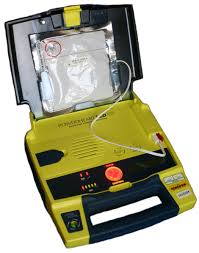De Anza brings more AEDs to campus
April 19, 2016
New first aid devices have been placed around De Anza College. To reduce response times in an emergency, De Anza increased the number of automated external defibrillators on campus.
An AED is a portable device that checks the heart rhythm and can send an electric shock to the heart to try to restore a normal rhythm, according to the National Institutes for Health.
“These units are in addition to the AEDs carried in all our police patrol vehicles and in the police station,” according to an email from Jeff Schlesinger, deputy chief- emergency manager for the Foothill-De Anza Police Department.
While many are familiar with what an AED is, few know how to properly operate one in a cardiac emergency.
70 percent of Americans do not know how to perform CPR or assist during a cardiac emergency, according to the American Heart Association.
While the FHDA police department does not offer CPR or AED training for students or the general public, De Anza physical education and health instructor Mary Donahue offers Health 57E. CPR and AED training is incorporated in the curriculum.
“Students in the HLTH 57E class are taught to the level of professional rescuers,” according to an email from Donahue. “The class is usually for a certification they want for work, not for training specific to the new AEDs on campus.”
According to the description on her website, students will learn about, “cardiopulmonary resuscitation and automated external defibrillation for professional rescuers and health care providers.”
For those interested in learning about AEDs but do not have the time for another class, you can visit http://marydonahue.org/aed-quick-facts and receive a step by step guide on how to use an AED.
Classes are also offered through the Red Cross and the American Heart Association.

